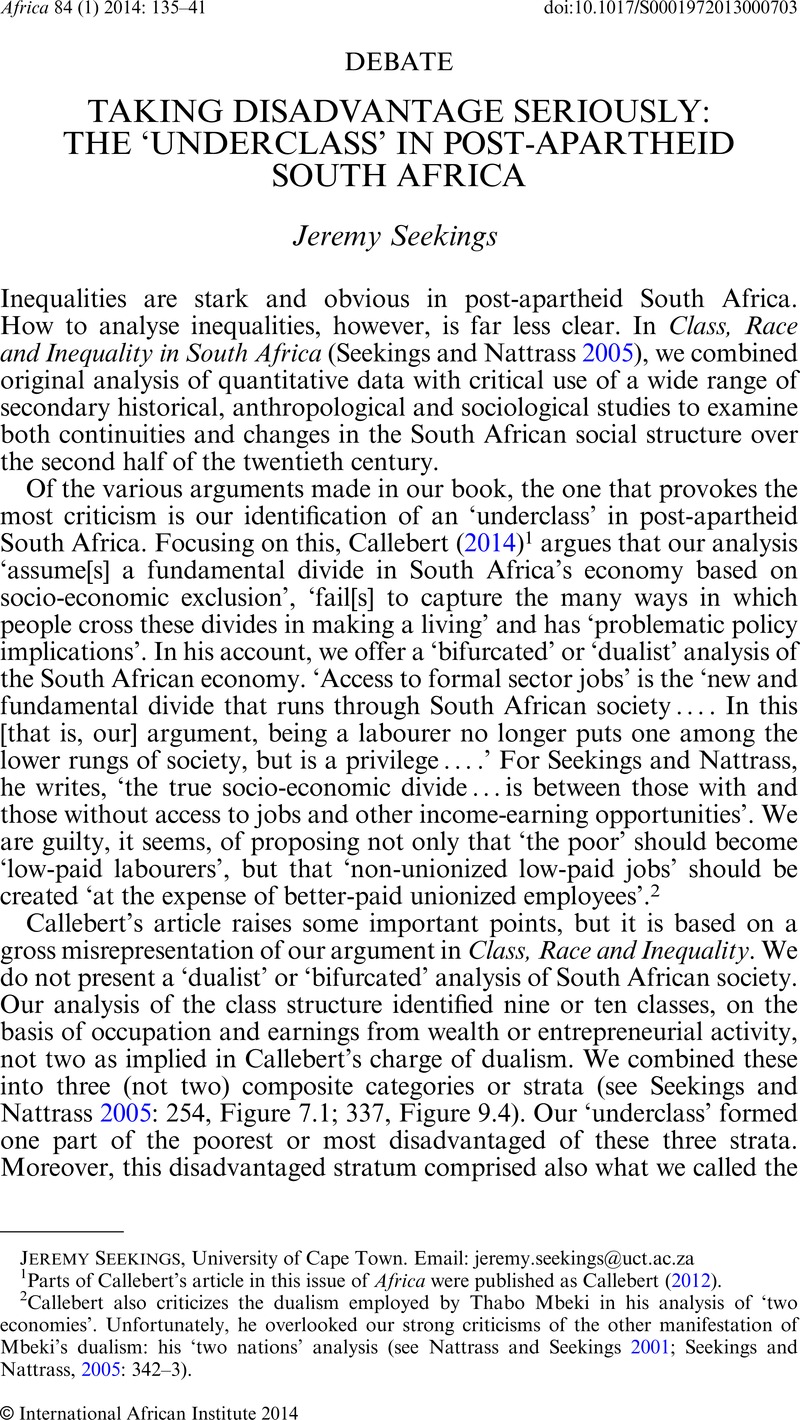Crossref Citations
This article has been cited by the following publications. This list is generated based on data provided by Crossref.
Lombard, Mighael
and
Crankshaw, Owen
2017.
Deindustrialization and racial inequality: Social polarisation in eThekwini?.
Cities,
Vol. 60,
Issue. ,
p.
221.
Hunter, Mark
2017.
Parental choice without parents: families, education and class in a South African township.
Compare: A Journal of Comparative and International Education,
Vol. 47,
Issue. 1,
p.
2.
2019.
Race for Education.
p.
101.
2019.
Race for Education.
p.
149.
2019.
Race for Education.
p.
125.
2019.
Race for Education.
p.
xiii.
2019.
Race for Education.
p.
53.
2019.
Race for Education.
p.
292.
2019.
Race for Education.
p.
1.
2019.
Race for Education.
p.
269.
2019.
Race for Education.
p.
174.
2019.
Race for Education.
p.
215.
2019.
Race for Education.
p.
77.
2019.
Race for Education.
p.
29.
Hunter, Mark
2019.
Race for Education.
2019.
Race for Education.
p.
219.
2019.
Race for Education.
p.
198.
Walsh, Aylwyn M.
2023.
Towards redress: The ‘not-yet’ future between harm and repair in Cape Town.
Futures,
Vol. 153,
Issue. ,
p.
103225.





